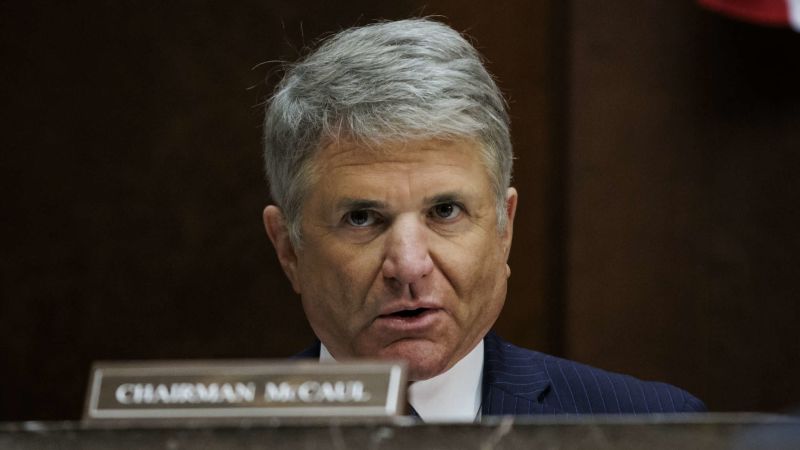Representative McCaul expressed concern over the influence of Russian propaganda on a portion of the Republican base during an interview with Puck. He warned that this propaganda has “infected” the GOP and is impacting their views and beliefs. This statement highlights the ongoing issue of foreign interference in American politics and the potential consequences it can have on domestic affairs. The acknowledgment of this problem by a prominent GOP lawmaker underscores the need for bipartisan efforts to address and counteract foreign propaganda.
In response to Representative McCaul’s comments, House Intelligence Chairman Representative Mike Turner discussed the issue with CNN’s Jake Tapper. Turner recognized the threat posed by Russian propaganda and emphasized the importance of addressing it to protect the integrity of American democracy. He expressed concern over the impact of disinformation campaigns on public opinion and political discourse, calling for increased vigilance and countermeasures to combat foreign influence. Turner’s statements reflect the growing awareness within the Republican Party about the dangers of foreign propaganda and the need for a unified response to safeguard national security.
The infiltration of Russian propaganda into the GOP base raises questions about the extent of foreign influence on American politics. The spread of misinformation and manipulation of public opinion by foreign actors threatens the democratic process and undermines the credibility of political institutions. By acknowledging this issue and discussing it openly, Republican lawmakers like McCaul and Turner are taking a stand against foreign interference and calling for action to protect American democracy. Their warnings serve as a wake-up call to the public and policymakers about the dangers of propaganda and the need for vigilance in the face of foreign influence.
The prevalence of Russian propaganda in the Republican base underscores the challenges faced by American democracy in the digital age. With the proliferation of social media and online platforms, foreign actors have greater opportunities to spread disinformation and sow discord among the public. The manipulation of information and the amplification of divisive narratives pose a significant threat to the integrity of elections and the functioning of democratic institutions. Recognizing this threat, lawmakers are working to address the issue and strengthen defenses against foreign interference to safeguard the democratic process.
Efforts to counter Russian propaganda and foreign influence require a coordinated and bipartisan approach. By working together to identify and combat disinformation campaigns, lawmakers can protect the integrity of American democracy and uphold the principles of free and fair elections. Cooperation between Republicans and Democrats is essential to develop robust strategies and policies to address the threat of foreign interference effectively. By uniting against a common enemy, lawmakers can demonstrate their commitment to defending democracy and national security against external threats.
In conclusion, the warning from Representative McCaul about the impact of Russian propaganda on a portion of the Republican base highlights the need for vigilance and action to counter foreign interference in American politics. By acknowledging the threat posed by disinformation campaigns and emphasizing the importance of defending democracy, lawmakers like McCaul and Turner are calling for a united front against foreign influence. With bipartisan cooperation and a commitment to upholding democratic values, policymakers can work together to strengthen defenses against propaganda and safeguard the integrity of elections. The acknowledgment of this issue serves as a critical step in addressing the challenges posed by foreign interference and protecting the foundations of American democracy.


